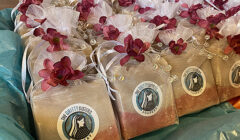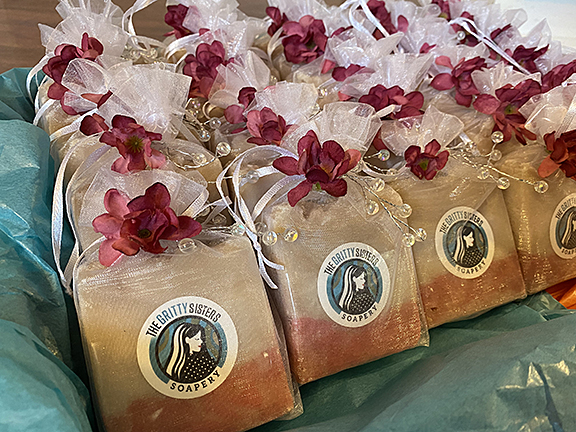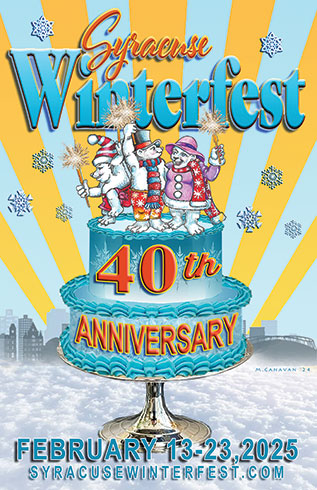How Much Do Wedding Favors Cost?

And do you really need to give them?
Once upon a time, favors were as common at Western-style weddings as tiered white cakes and poofy-sleeved ball gowns. These days, marrying couples are pretty much split down the middle on how necessary they actually are, but event planner Summer Newman is still a fan of the concept. “It goes back to gracious hosting,” she explains. “Favors tell your guests that you appreciate them coming out to celebrate you.”
Meet the Expert
Summer Newman is the founder of Summer Newman Events, a full-service destination wedding planning and design company based in Southern California. She was recently named a top wedding planner by Martha Stewart Weddings and has also been featured on Brides and Style Me Pretty.
If you’re thinking about including favors in your wedding, it can be helpful to know the etiquette surrounding them – as well as how much to budget. Read on for all the essential details.
Average Cost of Wedding Favors
Like almost all aspects of a wedding, the cost of favors can vary greatly. Factors that influence pricing can include the type of favor, wedding locale, and display design. That being said, The Wedding Report indicates that, in 2019, U.S. couples spent an average of $241 on wedding favors. Newman, however, advises her clients to budget for between $10 and $20 per guest for favors. If the favor will be a food item, that estimate can occasionally be lowered to $5 per guest.
What to Budget When Donating to Charity
Donating to a charitable cause in lieu of giving favors has become an increasingly popular option at weddings. While your first instinct might be to set aside the exact amount you would have spent on favors and give it to a favorite organization, Newman suggests a more nuanced approach. “You want to give something that’s impactful,” says Newman, who advises her couples to aim for a gift of $1,000 or more. If that’s not possible, she suggests taking your original favor budget and doubling it using the money you might have spent on something else, or given to the organization at another point in the year.
Another approach: Work with the charity to fund a specific project or donate a discrete number of supplies, then share that info with your guests. “Instead of just placing a sign on a table, tell guests why the charity means so much to you in your speech,” says Newman. “Thank them for the opportunity to give the gift, and then afterwards, follow up on your wedding website or your social media pages. Organizations typically send a thank you letter – share that. Let them know their favor did something good.”
Favors accomplish a task necessary for any gathering: they thank guests for coming. But as weddings – and the world – become more eco-conscious and experience-driven, favors in their traditional sense have largely fallen out of fashion. After all, who really needs another key chain or wine opener? That’s why Newman advises her couples to think carefully about what they want to give – and make sure it’s meaningful and well thought-out – before fully committing. “If you’re doing it just for the sake of having a favor, then you don’t really need it,” she says. “Use that money elsewhere in the wedding planning process to make your guests feel loved and taken care of.”
Should We Put Our Names and Date on Favors?
Put yourself in your guests’ shoes: Would you want something that had someone else’s names and wedding date on them? The answer is likely no, but there are some exceptions. Initials and dates can be fun for disposable food boxes, single-use favors, or favors with a short shelf life, such as hand sanitizer. In other circumstances, think carefully about the design. “Don’t put your info on your favor unless it’s going to be very sleek, elegant and refined looking,” says Newman. “I had clients who wanted to put their initials on a mask, so I said, ‘Make it look like a fashion brand logo.’”
When and How Do We Hand Out Favors?
Wedding favors are usually a second-half-of-the-reception thing. After the cake has been cut and the dance floor is in full swing, favors can be displayed near the main exit of your venue. If your favor doubles as your escort or place card, guests will receive them earlier.
Add a small “Take me home!” sign near the display or tag to the favor so guests know it’s a gift.
Here are Newman’s favorite things to offer as wedding favors:
Something local. This works especially well with destination weddings – who wouldn’t want to come home from Tuscany with a sample of Italian olive oil? Not only does this give your guests the opportunity to experience something new, but it’s also an intentional investment in the local economy. If your wedding is a destination wedding, avoid something that will be cumbersome to pack. And think twice about matchbooks – the Transportation Security Administration (TSA) allows one in carry-on luggage, but prohibits them from being packed in checked baggage.
A favorite treat. “I always ask clients if they have a special food they love,” says Newman. “Yummy treats are the best, and they go very quickly.” This can mean something purchased directly from a business (like, say, the delish salted caramels you picked up during the trip you got engaged), or, for an especially sentimental touch, a home-baked goodie from a beloved family recipe.
Late-night eats. Doughnut walls, fresh churros, and even food trucks are all fun, satisfying end-of-night options that can be done in place of traditional favors. “Food as a favor never gets old,” says Newman. Set out biodegradable boxes alongside late-night snacks so guests can take them back to the hotel and eat them at their leisure.









